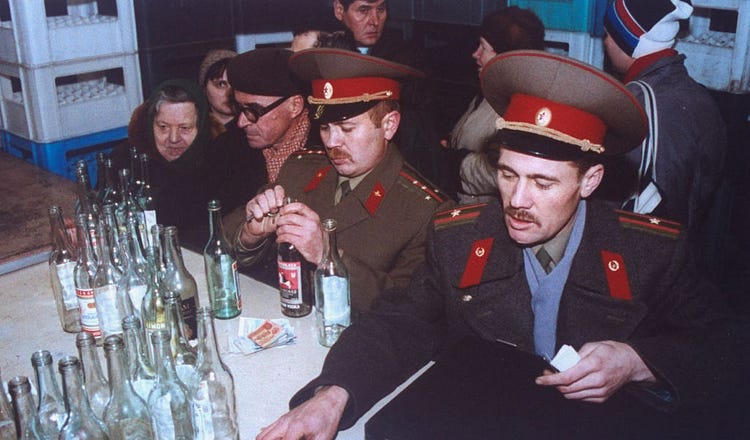Letters to the Editor: Rural America Isn’t Evil

Smolensky Street shoppers waiting to buy vodka amid economic reform price hikes. (Photo by Sergei Guneyev via Getty Images)
Plus: Technology will win us Cold War 2.0.
8
What if the most notorious murder of a gay man wasn’t a hate crime? This is the question that motivated Ben Kawaller’s recent report from Laramie for The Free Press. A generation ago, Matthew Shepard was brutally murdered in what appeared to be a homophobic attack in the Wyoming town. In the aftermath, gay activists, supported by the media, presented sm…
Continue Reading The Free Press
To support our journalism, and unlock all of our investigative stories and provocative commentary about the world as it actually is, subscribe below.
$8.33/month
Billed as $100 yearly
$10/month
Billed as $10 monthly
Already have an account?
Sign In


